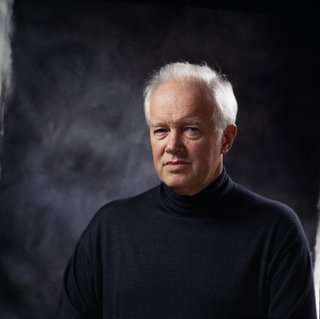|
Back
Embracing the Universe with a Snobbish Account Hong Kong
Hong Kong Cultural Center Concert Hall
02/10/2010 - & February 11*
Gustav Mahler: Symphony No. 3 in D minor
Kelley O’Connor (mezzo-soprano)
Hong Kong Philharmonic Orchestra, Ladies of the Hong Kong Philharmonic Chorus, The Hong Kong Children’s Choir, Edo de Waart (conductor)

E. de Waart (© Bobby Lee)
Even it was a weekday concert with the Chinese New Year ahead, HKPO’s performances of Mahler’s Third Symphony on Wednesday and Thursday inspired an 80% full concert hall, many of the audiences being faithful disciples of Maestro de Waart’s Mahler symphonies. Works of Mahler, together with those by other two Austro-German orchestral music giants Wagner and Bruckner, have been frequently under Maestro de Waart’s baton. This includes the performance of Das Lied von der Erde two months ago (read here).
Maestro de Waart conducted Mahler’s Third Symphony with HKPO for the first time in 2006, with the American mezzo-soprano Nancy Maultsby. She shares the warm and rich voice with this time’s mezzo-soprano Kelley O’Connor. Indeed, unlike some conductors who highlighted the majesty and glory of the gigantic work, the whole symphony was rendered in a rather intimate and cherished manner, underlying its subtitle “a summer morning dream” by the composer himself. Under Maestro de Waart’s elegant approach, the second part of the work (the second to the sixth movements) were more cogently and trenchantly delivered than its first part (the first movement). The ingenuous and disarming woodwinds in the second movement and the exquisitely polished phrasing arcs in the last were particularly enchanting and blissful. Off-stage instruments were also carefully balanced so that the tranquility and loneliness of the Posthorn were perspicaciously brought out.
Ms. O’Connor sang the fourth movement with an exceptionally plainspoken tone. The bitter weeping and heavenly joy in the fifth movement were also rendered without much emotional contrast. However, the last three movements were so coherently united together without pauses that the structural architecture of the work could be clearly visible. (Or was it because the Maestro was provoked by the audience’s applauses and late-comers after the first two movements?) For ears attuned to more expressive and romanticized interpretations, such as those by Bernstein and Barenboim, de Waart’s reading sounded a little monochromic. Notwithstanding, it was this inordinate monochrome that made the long awaiting climatic ending sounded triumphant and majestic without going crudely loud. But was this snobbish account truly reflecting Mahler’s remarks that a symphony should embrace everything of the Universe? It is up to audiences’ individual artistic convictions.
It was a pity that the conductor’s intention could not be completely executed by the orchestra due to the technical deficiencies of some musicians. The burbling tone of the horn was nauseatingly conspicuous in the tranquil third movement, in which each tiny discretion could be clearly discernible. The rough and breathy bassoon, in contrast to the suave tones of other woodwinds, sounded particularly jarring.
In a nutshell, Wednesday and Thursday’s performances were more musically mature than that in 2006. HKPO’s improvement since Maestro de Waart’s arrival in 2004 has been telling and tremendous. It is hoped that the momentum of the orchestra and its orchestral builder can be maintained ceaselessly. We are looking forward to their performance of the Bruckner 8 at the end of the month.
Danny Kim-Nam Hui
|